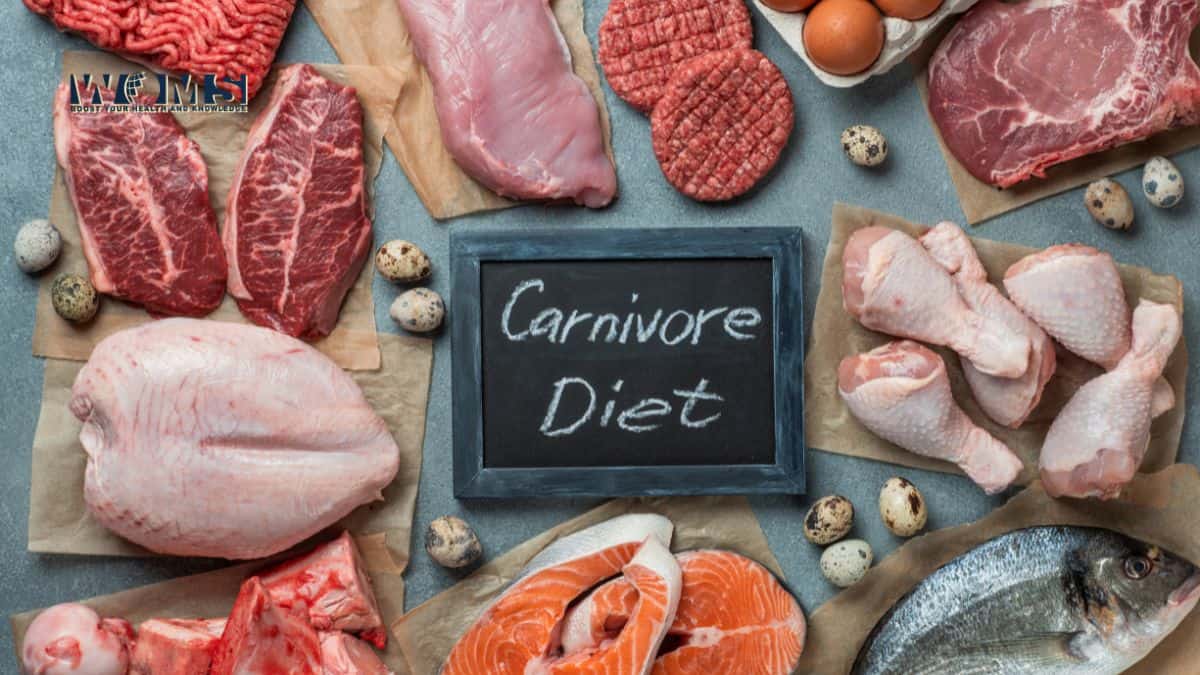The Benefits and Risks of the Carnivore Diet

A diet is like our personal food plan that can be influenced by what we like to eat and what we’re aiming for, whether it’s losing weight, having more energy, or just staying healthy.
Diets can be all sorts of things, from eating a mix of different foods to focusing on specific types. Some people go for a variety, while others might follow plans that limit certain foods. It’s like finding the food groove that suits you and your goals, by considering what you enjoy eating and what makes you feel good.
From the simplicity of the Mediterranean Diet to the unique approach of Keto, and the back-to-basics philosophy of Paleo, there are a lot of paths to explore. For those interested in plant-based choices, the Vegetarian and Vegan Diets are where it’s at. But for now, we will be covering the Carnivore Diet in this article.
What is the carnivore diet?
The carnivore diet is like the ultimate meat-lovers feast. It’s a way of eating where you mainly eat animal products. No fruits, veggies, and carbs from plants. Picture a plate full of meat consisting of beef, pork, chicken, and maybe some fish. People who are into this diet believe it can bring some health perks, like weight loss and extra energy.
What foods are allowed to eat on the carnivore diet?
This type of diet keeps things pretty strict, it’s all about loading up on animal products and excludes plant-based foods like fruits, vegetables, grains, nuts, and seeds. The goal is to rely solely on animal-derived foods for nutrition.
Here’s a list of the kinds of foods you’d usually find on the carnivore diet:
- Beef: Including various cuts like steak, ground beef, and beef organs.
- Pork: Options include pork chops, bacon, ham, and pork sausages (e.g.,Braised Pork in Sweet Soy Sauce)
- Lamb: Lamb chops and ground lamb are common choices.
- Chicken: All parts of the chicken are allowed, such as breasts, thighs, wings, and organs. (e.g.,Pesak Chicken).
- Fish: A variety of fish and seafood, including salmon, tuna, sardines, and shellfish.
- Eggs: Both chicken eggs and eggs from other animals are typically allowed.
- Dairy: Some versions of the carnivore diet permit certain dairy products like cheese and butter. However, others follow a stricter approach that excludes dairy.
Restricted Food for Carnivore Diet
Now that we know what kinds of foods are allowed on this diet, what about the restricted ones? Here’s a list of foods typically restricted or avoided on the carnivore diet:
- Fruits: All types of fruits, including berries, apples, bananas, etc.
- Vegetables: No veggies allowed. That means no greens, carrots, or any plant-based sides.
- Grains: Say goodbye to rice, wheat, oats, and other grains.
- Nuts and seeds: These are off the menu on the carnivore diet.
- Legumes: Beans, lentils, and other legumes are excluded.
- Sugars and sweeteners: Any form of added sugars or sweeteners is typically avoided.
Who should eat a carnivore diet?
If you have specific health goals in mind, like losing weight or adding some energy to your body for short-term effects, the carnivore diet might seem like an option to try. But, you need to think twice if you’re concerned about missing out on essential nutrients like vitamins, minerals, and fiber, you might want to consider other eating plans that include a variety of foods.
Remember, the long-term effects of the carnivore diet are still a bit of a mystery, so it’s always a good idea to consult with a registered dietitian or a nutrition expert before jumping into any major dietary changes.
Is a carnivore diet healthier?
The question of whether a carnivore diet is healthier is a bit like a puzzle with missing pieces. Some people who follow it believe it brings benefits like weight loss and extra energy, but not everyone agrees.
On one side, cutting out fruits, veggies, and carbs can be a deal-breaker for those who argue they’re essential for a balanced diet. These plant foods bring in a bunch of vitamins, fiber, and other goodies our bodies need.
On the other hand, some people claim that going full carnivore helps with issues like digestion or certain health conditions. However, the scientific study on the long-term effects is still in progress, and there’s a lot to research about it.
Carnivore Diet Benefits and Risks
As said before, this diet is a way of eating all meat and animal products, leaving out things like fruits and veggies. Some say it helps with losing weight and also gives them lots of energy for short-term effects. However, it comes with some risks.
Skipping fruits and veggies means missing out on important vitamins and fiber, and it might mess with your digestion. Eating a lot of red meats, such as pork, beef, and lamb, might not be great for the heart. The saturated fats and cholesterol found in red meats can potentially raise blood cholesterol levels and might impact heart conditions.
If someone already has trouble with their kidneys, they should be careful with a diet that has too much meat. Too much protein, which is found in meat, can make the kidneys work extra hard and might make kidney problems worse. Our kidneys play a vital role in processing protein, so eating too much meat could be tough for them, especially for those who already have kidney issues.
In summary, you shouldn’t just follow every recommendation without understanding what’s suitable for your body. Before trying a diet, take the time to learn about it or consult with a dietitian to see if it’s a good fit for you, especially given the lack of evidence for its long-term effects. Remember, what we eat plays a crucial role in our health, so be smart about what is suitable and not suitable for our bodies.




